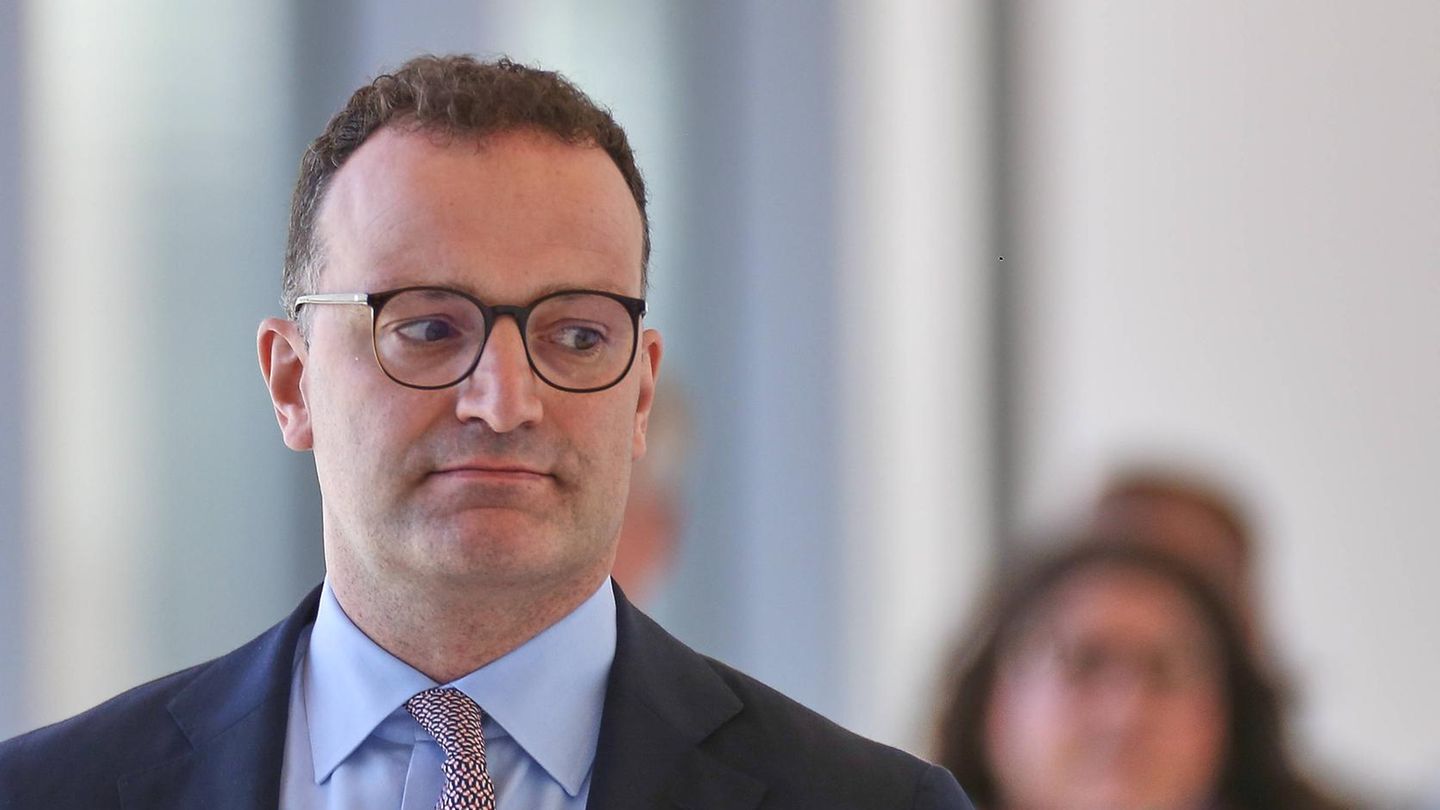Federal election
Off to the election campaign: What do the parties want?
Copy the current link
Before the new election, things are happening in quick succession. The parties present their priorities. Differences – and overlaps – become clear.
Economy, housing, arms deliveries: Before the expected federal election on February 23rd, the parties are starting the big wooing for voters with proposals and promises. The Union, SPD and Greens presented their election programs in Berlin, and the ideas of the FDP, AfD, Left and Alliance Sahra Wagenknecht are also largely known – with very different focuses.
For the SPD, Chancellor Olaf Scholz is committed to good wages and social security. Union Chancellor candidate Friedrich Merz is promoting drastic tax cuts. The FDP with top candidate Christian Lindner is concentrating on the economy. The Greens led by Vice Chancellor Robert Habeck are concerned with shaping climate protection in a socially responsible manner.
The AfD around chancellor candidate Alice Weidel wants – unlike all other parties in the Bundestag – to leave the EU, the euro and the Paris climate agreement. The Left, with the top duo Jan van Aken and Heidi Reichinnek, sees lower rents and the cost of living as top issues. BSW candidate for chancellor Sahra Wagenknecht is calling for an end to arms aid for Ukraine. There are overlaps, but sometimes the positions are far apart.
Taxes and debt brake
All political forces promise relief. The SPD wants this for 95 percent of all taxpayers – without giving any details. The CDU and CSU want to gradually reduce the income tax rate. The top tax rate of 42 percent should only apply to higher incomes. The Greens want a higher basic allowance up to which no income tax is due. The FDP gives the specific figure of at least 1,000 euros.
The Union and FDP want to completely abolish the solidarity surcharge. The SPD wants to keep it for the richer people, the Greens want it as part of the income tax. The AfD is in favor of lower taxes on income and higher tax exemptions on capital income (savings allowance). She also wants to abolish the CO2 tax, property tax and inheritance tax.
The SPD is holding out the prospect of a lower VAT for food, while the Left even wants to reduce this tax for basic foods to zero. To provide counter-financing, the SPD and the Greens want to ask people with high assets to pay more. The Left and BSW also want that.
Opinions differ on the debt brake: the Union and the FDP want to stick to it – the SPD wants to introduce exceptions for investments, the Greens want to make them possible, and the BSW too. The left wants to put the brakes on it.
Minimum wage 15 euros: That’s what the SPD, Greens, BSW and Left want. The CDU/CSU are putting forward ideas for “the hard-working people”, such as tax-free overtime bonuses. The Union also wants more work incentives for social benefits. She wants to abolish “citizens’ money” under this name and replace it with a “new basic security”, with a focus on placement in jobs. The Union says that anyone who is not prepared to work should have their basic income cut.
The Left is going in the opposite direction: They want to make citizens’ benefit a “sanction-free minimum income” of 1,400 euros per month for single people, including rent and housing costs.
Pensions are a central issue for the SPD, the Greens, the BSW and the Left. The SPD and the Greens want to keep the pension level at 48 percent. The Greens are proposing a citizens’ fund to provide security: loans and the federal government’s own funds should be used to invest sustainably and in a climate-friendly manner in European and German companies. The income should be used to strengthen lower and medium pensions.
The Left and BSW are demanding better statutory pension benefits, even at the price of higher contributions. They want everyone to pay in, including civil servants, MPs and ministers.
The Left wants to lower the retirement age from 67 to 65 years – the SPD, the Greens and the Union do not want to change this. The FDP demands a “really flexible retirement”. In addition, she has once again written into her program her demands for an “individual share pension” and for a “retirement savings account for private pension provision”.
Economy and business cycle
“Performance must be worth it again,” says the Union. More flexible rules, simplifications and less bureaucracy should make Germany faster. As a “protective shield for our economy”, the Union is announcing instruments against subsidies that distort global competition. The FDP is calling for “deep and structural reforms” for a “real economic turnaround”. This includes reducing corporate taxes to below 25 percent.
The SPD is in favor of a so-called Germany Fund, which will support electricity and heating networks, charging stations and apartments. The Greens also support the concept of a loan-financed German fund – for example for the rail network, daycare centers or innovation incentives. According to the program, the Left wants to invest 20 billion euros a year in non-profit housing.
The BSW sees low energy prices as the driver of the economy. According to Wagenknecht’s ideas, the CO2 price should be abolished, subsidies for renewables should be eliminated and more fossil energy should be imported according to the “lowest price criterion”.
The Union immediately wants a de facto admission stop for migrants entering the country without authorization. Anyone who enters from an EU or Schengen country to apply for asylum should be turned away at the border. The BSW has a similar line. “Anyone entering from a safe third country has no right to stay,” says Wagenknecht. In this case, there is no entitlement to benefits.
Similar in content, the AfD is at the start with even harsher words. In the draft of her program she demands: “Close Germany’s asylum paradise” or “Germany needs a comprehensive repatriation offensive.”
Although the SPD advocates “quick and consistent deportations,” it prefers the voluntary return of migrants without the right to remain. The Greens are committed to a “fair, binding and solidarity-based distribution of those seeking protection in Europe”. The FDP advocates “orderly migration” according to clear rules. The Left does not want any restrictions on asylum.
The Ukraine war is an issue for all parties. The SPD wants to continue arms deliveries to Ukraine “with prudence and a sense of proportion” and “for as long as necessary”. However, it is against the delivery of the Taurus cruise missiles requested by Ukraine.
Union candidate Merz, on the other hand, has promised this under certain conditions. The CDU/CSU promise Ukraine all the support it needs. After an election victory, the Union wants Germany, France, Poland and England to jointly develop security guarantees for Ukraine in coordination with the USA.
The FDP draft program states that Ukraine must be able to defend itself against launch bases and supply lines on the Russian side with long-range weapons. “We therefore demand the immediate delivery of the Taurus cruise missile.”
The BSW demands an end to military support for Ukraine. “We demand the removal of arms money from the federal budget and finally honest efforts for a ceasefire and peace negotiations,” says a paper by Wagenknecht. Like them, the AfD also wants an end to the economic sanctions against Russia and a return to gas imports from there.
Bundeswehr and defense
The Union is in favor of compulsory military service. The SPD rejects a return to compulsory military service, but wants a “new, flexible military service”. The Greens want to make voluntary military service and the reserve more attractive to a broad target group. The FDP wants to expand “the Bundeswehr into the strongest conventional armed force in Europe”.
The BSW raises the issue of stationing US medium-range missiles: Wagenknecht strictly rejects this. The left sees it the same way. This also calls for NATO to be replaced by “a common security architecture for Europe”. The AfD also wants to develop a long-term alternative to NATO.
dpa
Source: Stern
I have been working in the news industry for over 6 years, first as a reporter and now as an editor. I have covered politics extensively, and my work has appeared in major newspapers and online news outlets around the world. In addition to my writing, I also contribute regularly to 24 Hours World.




